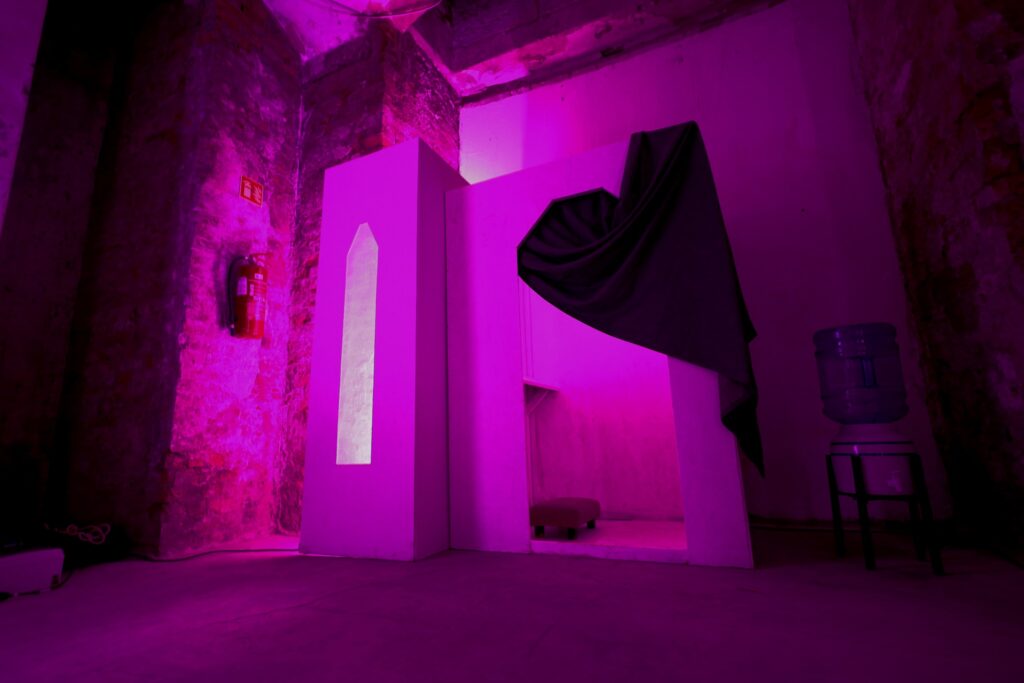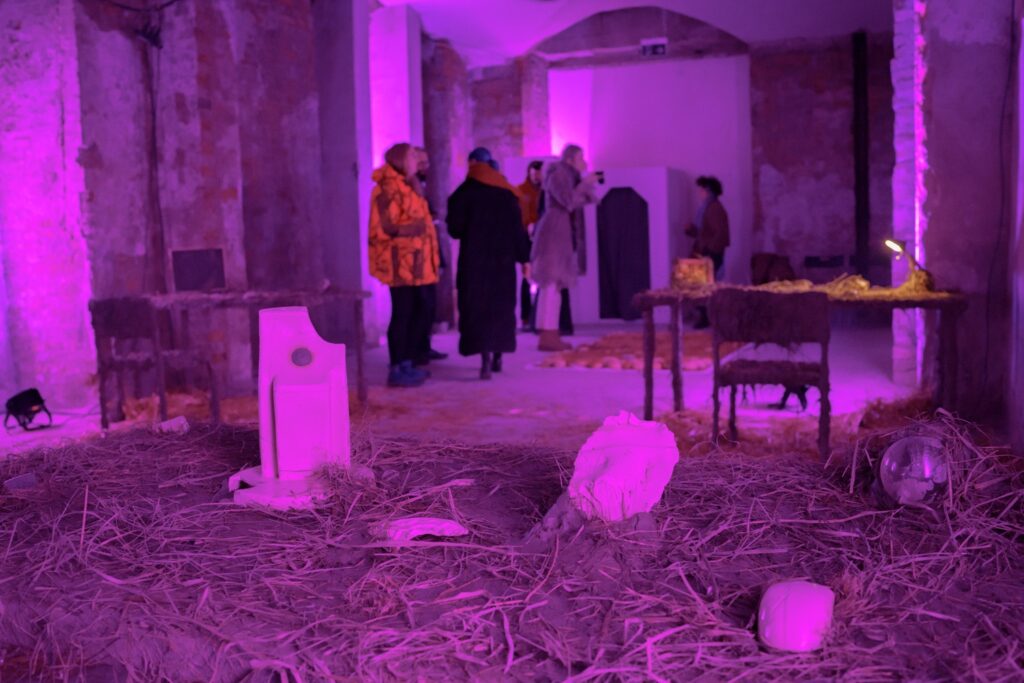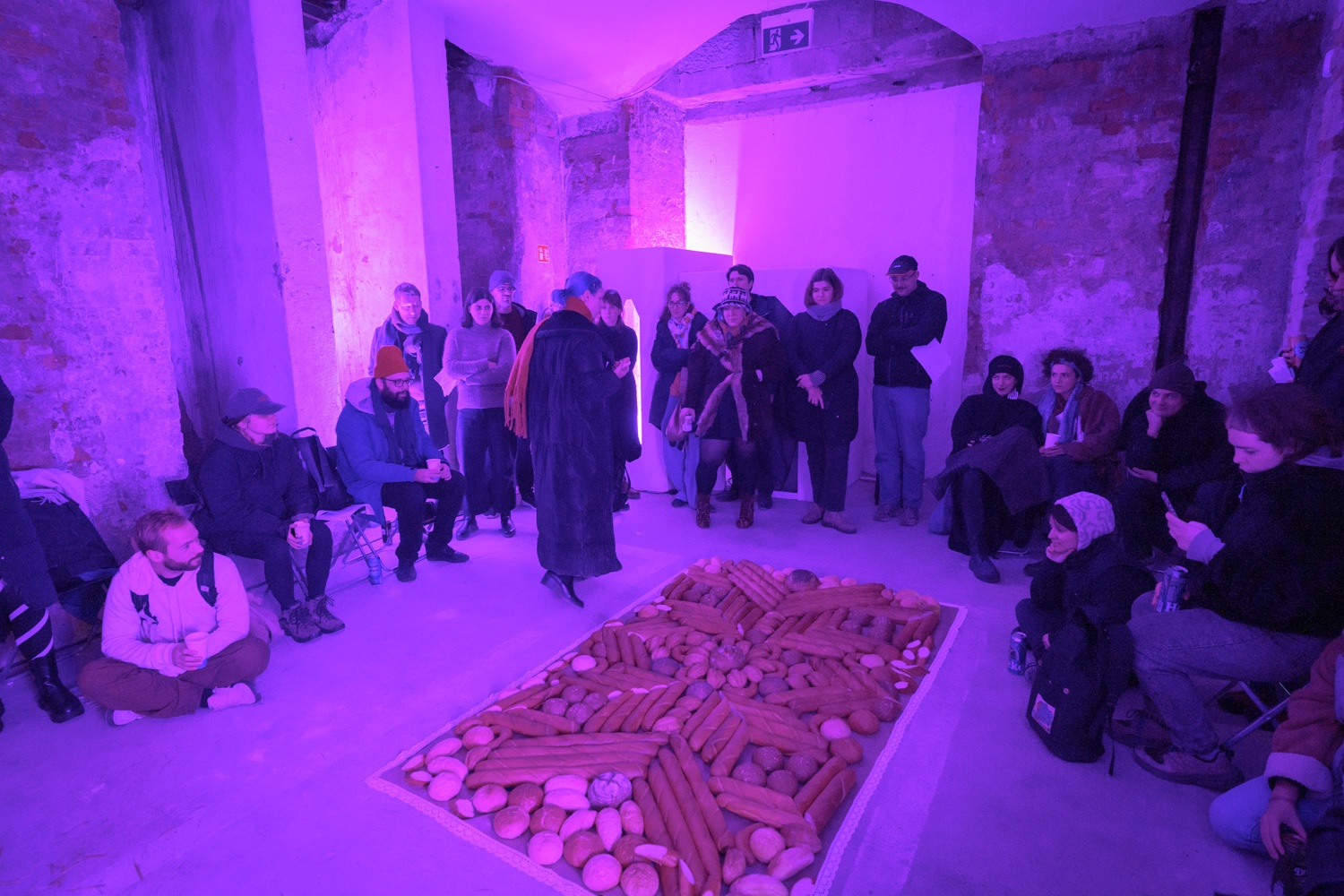We’ve successfully completed our first Erasmus+ project, Youth at Work, which tackled the topic of youth employment, but with a twist. Instead of approaching it from an institutional or economic perspective, the project asked a more personal question: Why do I struggle with work, and what conditions would make me feel truly fulfilled in my career?
The initiative was launched by seven young people who had previously participated in various projects by PAIKKA, a Budapest-based DIY collective that brings together artists and researchers for collaborative exploration. Over six months, the founding team immersed themselves in the topic, sharing personal stories, holding workshops, and meeting regularly for reading clubs. Once they had built a foundation, they issued an open call to expand the group to implement theoretical findings via artistic means.
Seven more participants joined, and the newly formed team first met in person for a three-day team-building retreat in Nagymaros, followed by further sessions in Budapest. These early gatherings were all about getting to know each other, sharing experiences and reflecting on work. As conversations deepened, the focus of the project naturally narrowed. Participants honed in on the shared anxiety many young people feel about employment: the clash between the desire to do meaningful work and the pressure to conform to societal standards, the challenge of committing to conventional jobs, and the burden of self-sufficiency.
In the second phase of the project, the group adopted a more hands-on, practical approach. They formed working groups and began developing an exhibition that would reflect their collective insights.

The result was 92529, an exhibition held at Bakáts Bunker in Budapest between November 21–26, 2024. At the heart of the exhibition was a “confession booth”—but instead of a priest, visitors interacted with a custom-built mobile app. The app invited people to reflect on their work lives, probing topics like guilt, hopelessness, and ambition. Confessions were transcribed through speech-to-text technology and published anonymously to a digital platform, where visitors could read, upvote, or downvote posts—mirroring the behavior of social media. The most popular confessions were eventually displayed on a large LED wall at the exhibition’s close.
The entire space was designed to echo the participants’ lived experience of the project, as in general work: endless meetings, abandoned ideas, bureaucratic tangles with local authorities, interpersonal tensions, and the big question of whether volunteering can turn into self-exploitation.
The exhibition opened with a performance, in which participants played recordings of their own confessions while eating bread from a “bread-carpet” leading to the confession booth, and a public gathering attended by the local TV and a broad audience. All project participants were involved in the performance, which was followed by informal discussions. The final day of the event was especially bold: a panel discussion inspired by the common complaint, “Why don’t young people want to work anymore?” The idea was to bring together people from opposing ideological backgrounds—but once speakers learned who they’d be sharing the stage with, many backed out. This humorous yet revealing turn of events was also documented and exhibited (respecting anonymity, of course). In the end, a smaller, more intimate version of the panel took place and offered meaningful exchange.

Through 92529 and the events around it, the project succeeded in sparking real conversations about work, while also bringing together a diverse group of young people who will continue to advocate for youth perspectives through art.
For long term impact, the confession booth wasn’t just a one-time installation. Participants developed a mobile app and built a durable, portable booth that can travel to festivals and venues across Hungary—and, hopefully soon, beyond. We’re already exploring collaborations with like-minded groups across Europe who are asking the same questions.

